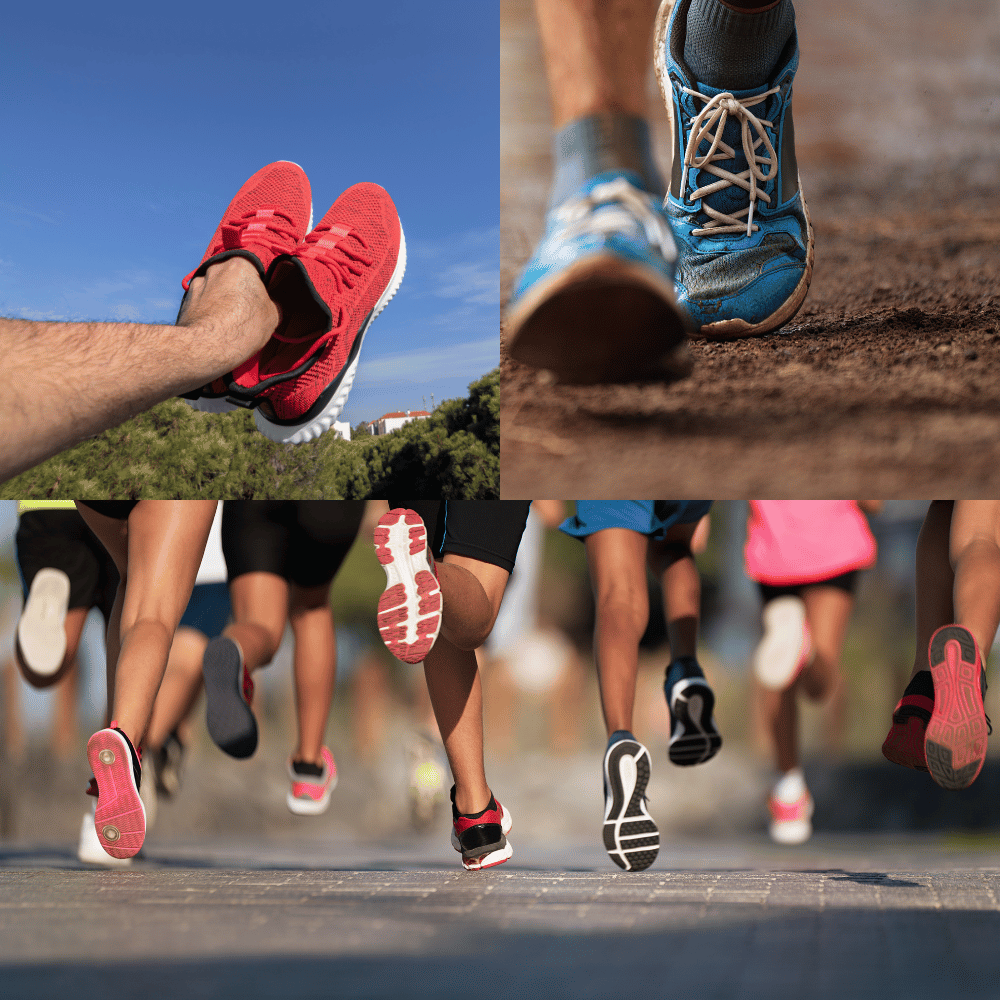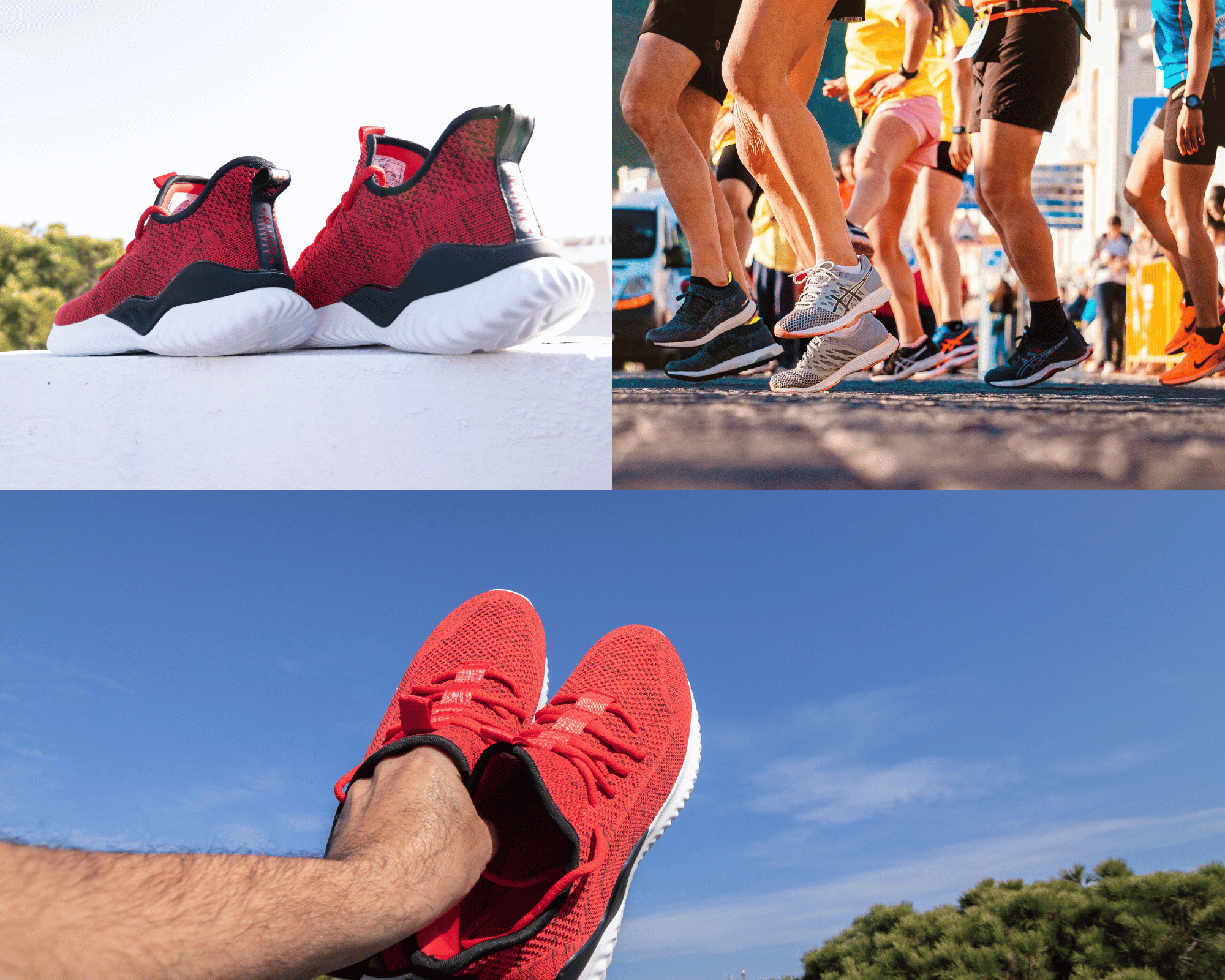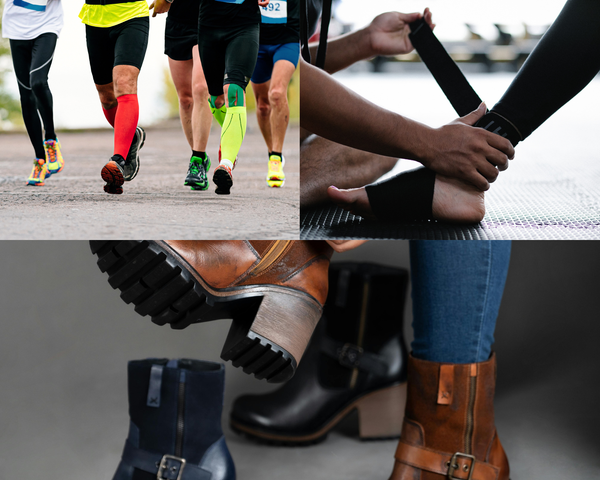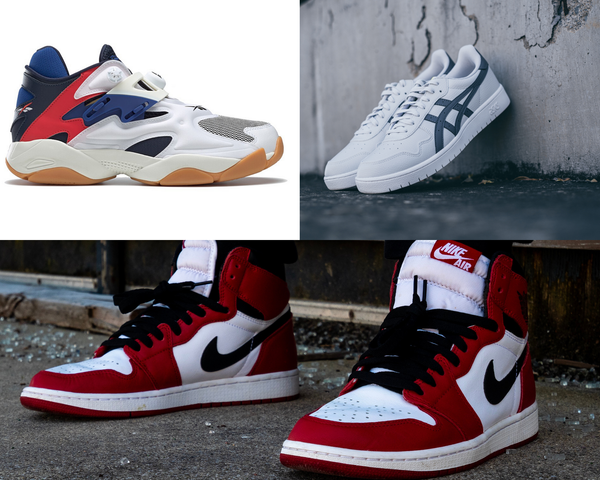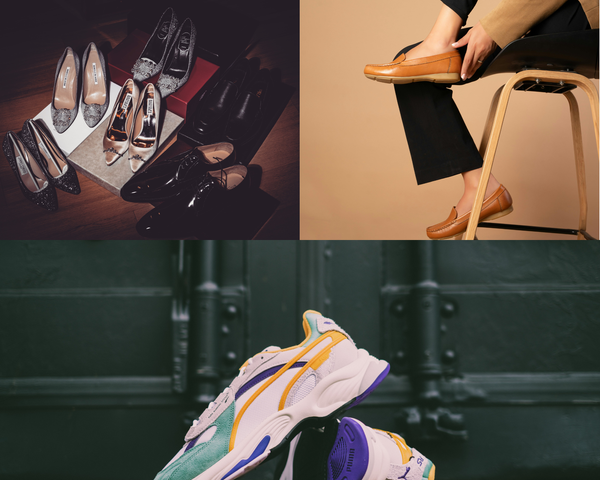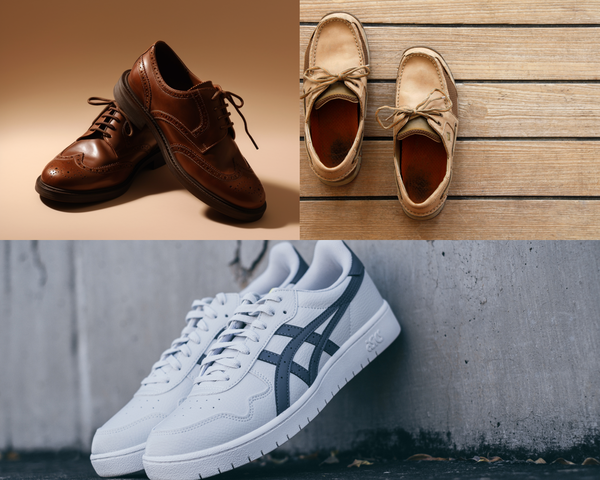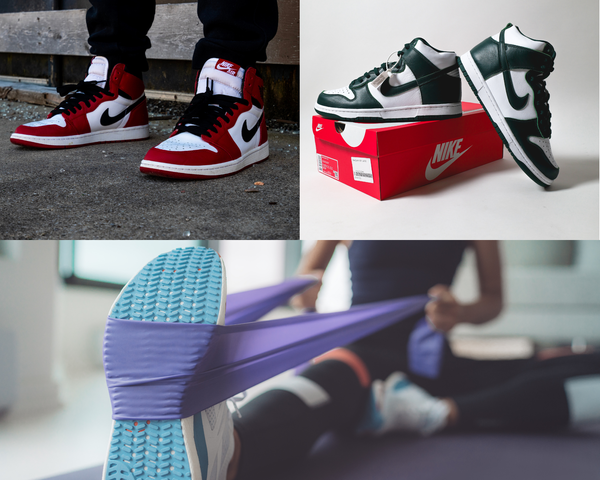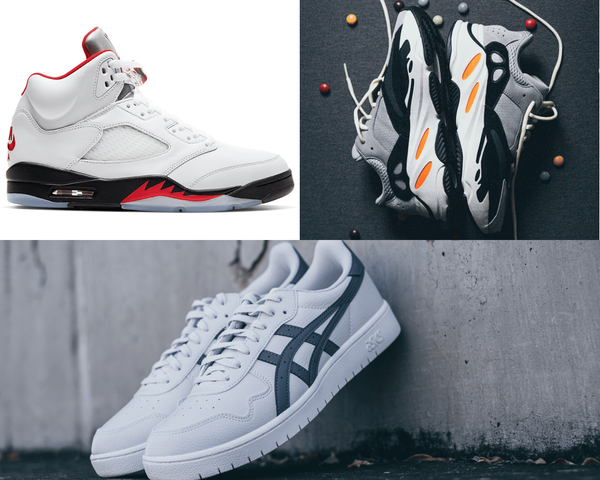Morton's neuroma is a painful condition affecting the ball of your foot, most commonly between the third and fourth toes. It feels like you're standing on a pebble in your shoe or on a fold in your sock. This condition is caused by a thickening of the tissue around one of the nerves leading to your toes. The pain can be sharp, burning, or even cause numbness in the affected toes.
Key Takeaways:
- Comfort is King: Prioritize shoes with ample toe space and cushioning.
- Arch Support Matters: Look for shoes with good arch support to alleviate pressure.
- Avoid High Heels: Opt for low-heeled or flat shoes to reduce foot strain.
Understanding Morton's Neuroma
Morton's neuroma is a painful condition affecting the ball of your foot, most commonly between the third and fourth toes. It feels like you're standing on a pebble in your shoe or on a fold in your sock. This condition is caused by a thickening of the tissue around one of the nerves leading to your toes. The pain can be sharp, burning, or even cause numbness in the affected toes.
The discomfort from Morton's neuroma can be exacerbated by wearing tight or high-heeled shoes. These types of footwear can compress the toes and the ball of the foot, increasing pressure on the nerve. Understanding the nature of this condition is the first step in finding the right shoes to manage the pain effectively.
The Importance of Proper Footwear
Choosing the right shoes is crucial for managing Morton's neuroma. The right pair can significantly reduce pain and improve your quality of life. Shoes that are too tight or have high heels can worsen the condition by putting additional pressure on the affected area.
When selecting shoes, look for those with a wide toe box to allow your toes to spread naturally. This helps in reducing the pressure on the nerve. Additionally, shoes with good arch support can help distribute weight evenly across your foot, minimizing stress on the ball of the foot.
Features to Look for in Shoes
When shopping for shoes to alleviate Morton's neuroma, focus on a few key features. First, ensure the shoes have a wide toe box. This allows your toes to move freely and reduces nerve compression. Second, look for shoes with ample cushioning in the sole to absorb shock and reduce impact on the foot.
Arch support is another critical feature. Shoes with good arch support help distribute your body weight evenly, reducing pressure on the ball of your foot. Lastly, consider shoes with a low heel or no heel at all. High heels can exacerbate the condition by shifting your weight forward, increasing pressure on the affected area.
The Role of Arch Support
Arch support plays a significant role in managing Morton's neuroma. Proper arch support helps distribute weight evenly across your foot, reducing pressure on the ball of the foot where the neuroma is located. This can significantly alleviate pain and discomfort.
Shoes with built-in arch support or those that accommodate custom orthotics are ideal. Orthotics can be tailored to your specific foot shape and needs, providing additional support where it's needed most. Investing in shoes with good arch support is a proactive step in managing the symptoms of Morton's neuroma.
Cushioning and Shock Absorption
Cushioning and shock absorption are essential features in shoes for those with Morton's neuroma. Shoes with adequate cushioning help absorb the impact of walking, reducing stress on the ball of the foot. This can help alleviate pain and prevent further irritation of the nerve.
Look for shoes with cushioned insoles or midsoles made from materials like gel or memory foam. These materials provide excellent shock absorption and comfort. Additionally, consider shoes with a rocker sole, which can help reduce pressure on the ball of the foot by promoting a natural walking motion.
The Impact of Heel Height
Heel height can significantly impact the symptoms of Morton's neuroma. High heels shift your weight forward, increasing pressure on the ball of the foot and exacerbating the condition. For those with Morton's neuroma, it's best to avoid high heels altogether.
Instead, opt for shoes with a low heel or no heel at all. Flat shoes or those with a slight heel can help distribute weight more evenly across the foot, reducing pressure on the affected area. This can help alleviate pain and prevent further irritation of the nerve.
Material Matters
The material of your shoes can also affect the comfort and management of Morton's neuroma. Soft, flexible materials that conform to the shape of your foot are ideal. These materials can help reduce pressure points and provide a more comfortable fit.
Leather and mesh are good options as they offer flexibility and breathability. Avoid shoes made from stiff materials that can cause friction and increase pressure on the foot. Choosing the right material can make a significant difference in managing the symptoms of Morton's neuroma.
The Benefits of Custom Orthotics
Custom orthotics can be a game-changer for those with Morton's neuroma. These specially designed inserts provide additional support and cushioning where it's needed most. Orthotics can help distribute weight evenly across the foot, appropriate footwear, forefoot pain narrow toe box reducing pressure on the ball of the foot and alleviating pain.
Consulting with a podiatrist can help you determine the best type of orthotics for your needs. They can assess your foot shape and gait to create a custom solution that addresses your specific symptoms. Investing in custom orthotics can be a worthwhile step in managing Morton's neuroma effectively.
Popular Shoe Brands for Morton's Neuroma
Several shoe brands are known for their comfort and support, making them ideal for those with Morton's neuroma. Brands like New Balance, Brooks, and Hoka One One offer shoes with wide toe boxes, excellent cushioning, irritated nerve, and good arch support.
These brands focus on creating shoes that prioritize comfort and functionality. They offer a range of styles, from athletic shoes to casual wear, foot elevated high heel shoes ensuring you can find a pair that suits your needs and lifestyle. Exploring these brands can help you find the perfect shoes to manage your symptoms.
The Role of Lifestyle Changes
In addition to choosing the right shoes, making lifestyle changes can help manage Morton's neuroma. Reducing activities that put excessive pressure on the ball of the foot, such as running or jumping, can help alleviate symptoms. Incorporating low-impact exercises like swimming or cycling can be beneficial.
Maintaining a healthy weight can also reduce pressure on your feet. Excess weight can exacerbate the condition by increasing stress on the ball of the foot. By making these lifestyle changes, you can complement the benefits of wearing the right shoes and improve your overall foot health.
Pain Management Strategies for Morton's Neuroma
Pain management strategies for Morton's neuroma can include a combination of footwear choices, lifestyle changes, and medical interventions. Over-the-counter pain relievers and anti-inflammatory medications can help manage pain and reduce swelling.
In some cases, corticosteroid injections may be recommended to reduce inflammation and alleviate pain. Physical therapy can also be beneficial, wearing high heels helping to strengthen the muscles in your feet and improve flexibility. Consulting with a healthcare professional can help you develop a comprehensive pain management plan.
The Importance of Regular Foot Check-Ups
Regular foot check-ups with a podiatrist are essential for managing Morton's neuroma. A podiatrist can assess your condition and recommend appropriate treatments, toe box, wide toe box, burning pain, including footwear changes, orthotics, or medical interventions.
Regular check-ups can also help monitor the progression of the condition and make necessary adjustments to your treatment plan. By staying proactive and seeking professional guidance, you can effectively manage the symptoms of Morton's neuroma and maintain your foot health.
The Psychological Impact of Foot Pain athletic shoes
Foot pain from Morton's neuroma can have a significant psychological impact. Chronic pain can affect your mood, energy levels, and overall quality of life. It's important to address not only the physical symptoms but also the emotional aspects of living with this condition.
Seeking support from friends, family, athletic shoes, tight shoes, arch support or a mental health professional can be beneficial. Engaging in activities that promote relaxation and stress relief, such as yoga or meditation, dress shoes can also help improve your mental well-being. By addressing both the physical and psychological aspects of Morton's neuroma, you can enhance your overall quality of life.
Exploring Alternative Therapies best running shoes morton's neuroma pain management
Alternative therapies can complement traditional treatments for Morton's neuroma. Acupuncture, massage therapy, and chiropractic care are some options that may provide relief from pain and discomfort. These therapies focus on improving circulation, reducing tension, and promoting overall foot health.
While alternative therapies may not replace conventional treatments, they can be a valuable addition to your pain management strategy. Consulting with a healthcare professional can help you determine which therapies may be beneficial for your specific needs.
Summary
Choosing the right shoes is a crucial step in managing Morton's neuroma. Prioritizing comfort, arch support, and cushioning can significantly alleviate pain and improve your quality of life. By making informed footwear choices and incorporating lifestyle changes, you can effectively manage the symptoms of this condition. Regular check-ups with a podiatrist and exploring alternative therapies can further enhance your pain management strategy.
FAQ
1. What are the best types of shoes for Morton's neuroma?
Shoes with a wide toe box, good arch support, and ample cushioning are ideal for managing Morton's neuroma. Brands like New Balance and Brooks offer options that prioritize comfort and support.
2. Can lifestyle changes help manage Morton's neuroma?
Yes, reducing activities that put pressure on the ball of the foot and maintaining a healthy weight can help alleviate symptoms. Incorporating low-impact exercises can also be beneficial.
3. Are custom orthotics necessary for Morton's neuroma?
Custom orthotics can provide additional support and cushioning, helping to distribute weight evenly across the foot. Consulting with a podiatrist can help determine if orthotics are right for you.
